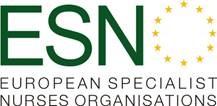
European Organisation for Specialised Nurses (ESNO) launches switch management guide between similar biological medicines - a guide for nurses
Date
Sections
Today, ESNO launched an informative guide for the specialised nursing community to facilitate interactions with patients switching from a reference to a biosimilar medicine.
The guide builds on existing European Commission guidelines for the healthcare professional community by specifically addressing the role of specialised nurse interactions with patients during the switch process.
Biosimilar medicines, like their reference medicinal products, help treat many complex diseases, including cancers, rheumatoid arthritis, psoriasis, inflammatory bowel disease, growth disorders and diabetes. They can increase patient access to life-saving treatments, enhance competition and contribute to healthcare system sustainability.
Nurses have a fundamental role in leading the transition between a biological and biosimilar medicine. This includes managing the process and communicating with the patient before, during and after the switch. The ESNO guide focuses on tools for nurses to better inform and communicate on biological and biosimilar medicines to patients. The guide has been developed by the ESNO community based on similar initiatives across Europe where switching programmes are already in place.
Ber Oomen, Executive Director at ESNO commented “switching between similar biological medicines needs good management. Nurses play a crucial role in communicating with patients and providing support and reassurance, before, during and after the switch. This is built on nurses' many years of education, and their experience with patients in different therapies. It is a process that requires time, patience and care.. Positive dialogue is important in answering patient questions. Patients need to know that their healthcare professionals understand the reasoning behind the switch and are confident that it is the right thing to do. This guide aims to achieve that.”
This initiative was supported by EFPIA and Medicines for Europe
The guide can be accessed at http://www.esno.org/publications.html
Medicines for Europe Communications:
Andrea Bedorin abedorin@medicinesforeurope.com
Kate O Regan koregan@medicinesforeurope.com

